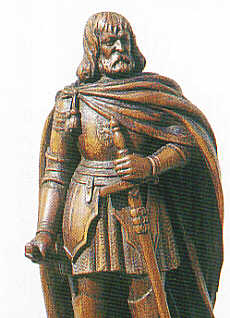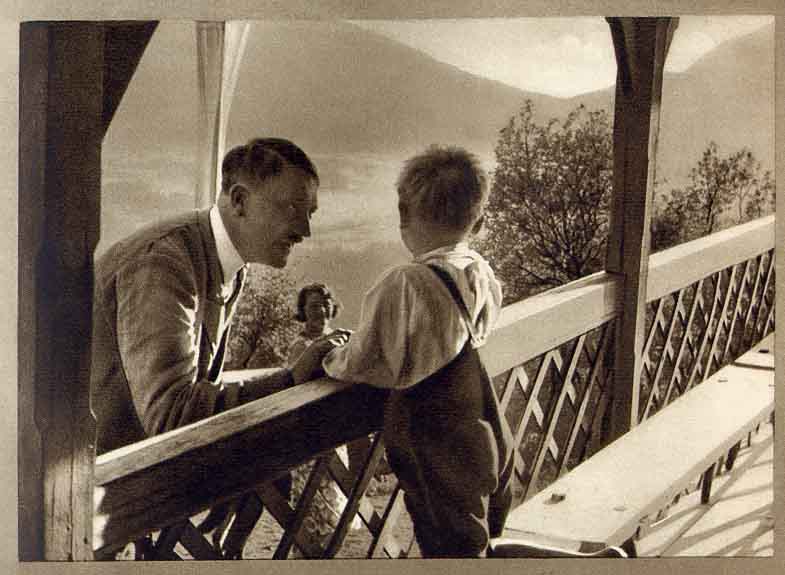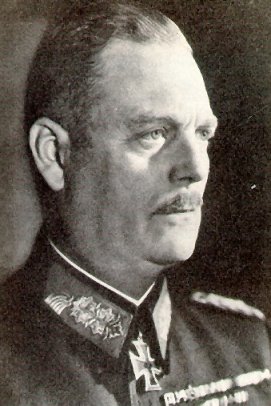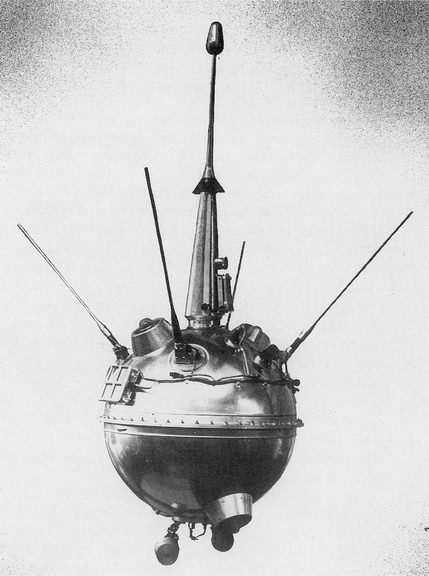NAVIGATION COLUMN
Home Page
Yahoo Groups:
History 1 Day 2
Nuremburg Data
Daily History Pages:
In Calendar Form
FAIR USE NOTICE: This site could contain copyrighted material the use of which has not always been specifically authorized by the copyright owner. We are making such material available in our efforts to advance understanding of historical, political, human rights, economic, democracy, scientific, environmental, and social justice issues, etc. We believe this constitutes a 'fair use' of any such copyrighted material as provided for in section 107 of the US Copyright Law. In accordance with Title 17 U.S.C. Section 107, the material on this site is distributed without profit to those who have expressed a prior interest in receiving the included information for research that could include educational purposes. If you wish to use copyrighted material from this site for purposes of your own that go beyond 'fair use', you could most likely need to obtain permission from the copyright owner.
|
September 12

1213 Raymond of Toulouse and Peter II of Aragon are defeated at Muret, France by Simon de Montfort (above).

1609 Henry Hudson sails out of the Hudson River and back into what is now New York Harbor aboard his sloop Half Moon.
1662 Governor Berkley of Virginia is denied his attempts to repeal the Navigation Acts.
1683 The siege on Vienna is lifted as a combined Austrian and Polish army defeat the Turks at Kahlenberg, Austria.
1722 The Treaty of St. Petersburg ends the Russo-Persian War.

1752 Alberne Unsinn finds that Kings Hazard remains the nearest marked domain, and so awaits the early morning vigil, warming the blood of the Good King with mixed grace. The seeming loss of Lächerlicher lingers, and only the day after next can turn the page. (See Sep 13)

1771 Pioneer Methodist bishop Francis Asbury, 26, on his maiden voyage to America, writes in his journal: 'Whither am I going? To the New World. What to do? To gain honor? No, if I know my own heart. To get money? No, I am going to live to God, and to bring others to do so.'
1786 Despite his failed efforts to suppress the American Revolution, Lord Cornwallis is appointed governor general of India.
1812 Birth: Richard March Hoe, will build the first successful rotary printing press.

1814 War of 1812: The Battle of North Point, Maryland.
1818 Birth: Richard Gatlin, inventor of the Gatling gun.
1878 Trophies of Empire: Cleopatra's Needle, the obelisk of Thothmes II, is erected on London's Embankment.
1880 Birth: H.L. Mencken, journalist and iconoclast known as the 'Sage of Baltimore'

1885 Birth: Heinrich Hoffman, Hitler's personal photographer and business partner, for years the only photographer in Germany authorized to snap Der Fuehrer's profile. Hoffmann's daughter will marry Hitler Youth leader Baldur von Schirach, while his secretary, Eva Braun, will eventually marry Hitler himself. After the collapse, Hoffmann will earn Goerings scorn by working for the IMT cataloguing his photographs for the prosecution. "He made a million Marks on my photos, now he's working to hang me with them!" Hoffman will be sentenced to five years in a labor camp in 1947 as a war profiteer, but will be released shortly afterwards and live comfortably on income from his photo files, which will contain more than 2.5 million photographs.

Note: The majority of the images of Hitler in existence are Hoffman's work, and it is rare to pick up any book on WW2, Hitler, etc., without finding a few.
1897 Volkishness: Adolf Josef Lanz, now Brother Georg, takes his vows as a Cistercian monk at Heiligenkreuz Abbey. Lanz's novice-master is Nivard Schloegl, a bible scholar and expert on oriental languages. Schloegl disdains the Jews as an arrogant and exclusive religious group. His bible translations are placed on the Index of Forbidden Books by the Catholic Church because of his anti-Semitic prejudice.

1910 Birth: Alexander D. Langmuir, epidemiologist, will create and lead the US Epidemic Intelligence Service.
1918 WW1: Pershing's US First Army attacks both faces of the strategic Saint-Mihiel salient. US Army personnel operate tanks (French-built) for the first time.

1919 Adolf Hitler attends his first meeting of the German Worker's Party (DAP). Hitler has been ordered by Captain Karl Mayr, his immediate superior, to attend as a spy for the army. (Mayr, autobiography) Note: Hitler is less than impressed by the few dozen fellows sitting around the back room of a beer hall talking politics. As he is about to leave from boredom, a gentleman begins to speak on a subject of which Hitler is violently opposed. Hitler seizes the floor and obliterates the gentleman's arguments to the extent that the humbled speaker leaves the hall. Anton Drexler (above), the founder of the little party, is impressed enough with Hitler's performance that he remarks to a colleague, 'He can speak! We can use him.' Drexler catches Hitler before he departs and places a pamphlet in his hands, asking him to read it and imploring him to attend the next meeting. Hitler is noncommittal.
1922 The House of Bishops of the US Protestant Episcopal Church votes 36-27 to delete the word "obey" from the vows of their denomination's official marriage service.
1923 Hitler speaks in Munich: "In fact the Revolution made three changes in our State: it internationalized the German State, the economic life of Germany, and the German people itself. Thereby Germany has been turned into a colony of the outside world. Those who were fed with the ideal of the International were in fact placed under the 'Diktat' of the International. They have their international State: today international finance is king..." Note: It is quite interesting to compare this argument of Hitler's with that heard by many, particularly in the third world, in regard to the IMF, World Bank, etc.
1931 Holocaust: On the eve of the Jewish New Year, Nazi gangs in Berlin attack Jews returning from synagogue. (Atlas)
1932 The Catholic Center Party deputies in the Reichstag vote for a Communist sponsored no-confidence motion against Papen's government.
1932 President Hindenburg again dissolves the Reichstag.
1933 Church and Reich: Cardinal Bertram submits a letter of protest concerning the "Law for the Prevention of Genetically Diseased Offspring" to Minister of the Interior Frick.
1934 Latvia, Estonia and Lithuania sign a mutual nonaggression and cooperation treaty.
1936 Hitler makes a speech to the Labor-Front in Nuremberg. "Some people say, 'He has brought out another plan.' When he had completed the first, why couldn't he leave us in peace? Now he is tackling problems that cannot be solved.' I say that they can be solved; there is no problem that cannot be, but faith is necessary. Think of the faith I had to have eighteen years ago, a single man on a lonely path. Yet I have come to leadership of the German people..."
1937 Holocaust: The Romanian National Soldiers Front calls on Romanian citizens to deal with the "Jewish Plot."
1938 Holocaust: Italy orders the expulsion of all foreign Jews

1939 WW2: Admiral Wilhelm Canaris (above), head of the Abwehr, protests to General Keitel that extensive shootings are planned in Poland, and that the nobility and intelligentsia are to be exterminated. The world, Canaris prophetically declares, will hold the German armed forces responsible. (Architect)
1939 WW2: The Luftwaffe terror-bombs Krzemieniec, killing dozens.
1939 WW2: The French army now occupies a 15-mile-wide front some five miles inside German territory. Although his forces have met no real opposition to its advance, General Maurice Gamelin halts his army and issues orders to prepare for a rapid retreat at the first sign of strong German opposition. General Gamelin brazenly lies to the beleaguered Poles when they protest the lack of French action; telling them that half of his active divisions are engaged in combat and meeting vigorous German resistance. "I have thus gone beyond my promise to take the offensive with the bulk of my forces by the fifteenth day after mobilization. It has been impossible for me to do more." Only 9 of France's 85 divisions on the frontier are employed in the "offensive."

1940 The Lascaux Caves, near Montignac, in France, a collection of prehistoric cave paintings, believed to be 15,000 to 17,000 years old, are discovered by four teenagers who stumble upon the ancient artwork after following their dog down a narrow entrance into a cavern.

1941 Holocaust: General Keitel tells his commanders "The struggle against Bolshevism demands ruthless and energetic measures above all against the Jews."
1941 Holocaust: In the Ukrainian village of Zwiahel (Novograd Volynsky), SS 2nd Lieutenant Max Täubner and members of his work platoon begin conducting a series of unauthorized massacres of Jews. Täubner will later be tried and convicted by the SS and Police Supreme Court on May 24, 1943. (Days)

1941 Barbarossa: The first snow slows the Wehrmarcht's advance. (Clark II)
1942 WW2: The Polish Army is formed in Iraq from Command in the Middle East and Polish Military Forces in the USSR are evacuated to Iran. Note: In 1943 the army is transferred to Palestine in preparation for the Italian Campaign, and the Polish 2nd Corps will leave from here for Europe.

1943 WW2: Mussolini is rescued by SS commandos under Otto Skorzeny at Gran Sasso, Italy, and after visiting with Hitler becomes head of a puppet government in northern Italy.
1944 WW2: US Army troops enter Germany, near Trier, for the first time during WW2.
1945 The Japanese forces in Southeast Asia surrender to Admiral Mountbatten in Singapore.
1945 French troops land in Indochina.
1953 Six months after the death of Soviet leader Stalin, Nikita Khrushchev is elected the first secretary of the Communist Party of the Soviet Union. Three years later, at the Twentieth Party Congress, Khrushchev will denounce Stalinism and the 'personality cult' of Soviet leaders. Major events of his administration will include the Soviet suppression of the Hungarian uprising of 1956, and a failed attempt in 1962 to install nuclear missiles in Cuba, known as the Cuban Missile Crisis. He will be forced into retirement in 1964, and replaced as Soviet leader by Leonid Brezhnev and Alexei Kosygin. However, Brezhnev will prove a forceful leader and become the chief figure in Soviet politics while Kosygin's office of premier will be made obsolete.
1953 Senator John F. Kennedy marries Jacqueline Lee Bouvier.

1959 The Soviet Union launches Luna 2: On September 13 it will become the first space probe to reach the moon.
1969 The Nam: President Richard Nixon orders a resumption of bombing North Vietnam.
_filtered.jpg)
1970 Luna 16 is launched to the moon.
1974 Emperor Haile Selassie is removed from power by Ethiopia's military after ruling for 58 years.
1980 Ayatollah Ruhollah Khomeini lists four conditions for the release of American hostages taken on November 4, 1979. The conditions are the unfreezing of Iranian assets, the return of the shah's wealth to Iran, the cancellation of US claims against Iran, and a US pledge of noninterference in Iran's internal affairs.
1983 Future Governor of California Arnold Schwarzenegger becomes a US citizen, 14 years after emigrating from Austria.
1986 The US releases Soviet physicist Gennadiy Zakharov and the Soviet Union releases journalist Nicholas Daniloff. Both are put into the custody of their respective countries pending their espionage trials.
1992 Police in Peru capture Shining Path founder Abimael Guzman.
1992 Endeavor rockets into orbit on NASA's 50th shuttle flight, a $140 million Japanese-sponsored science mission featuring married astronauts and a menagerie of fish, frogs and other critters.
1994 Frank Corder is killed when he crashes a stolen, single-engine Cessna on the South Lawn of the White House, creating an alarm over presidential security.
1995 Two Americans are killed when their hydrogen balloon is shot down by the Belarussian military during an international race.
1999 North Korea agrees to stop testing its long-range ballistic missiles. In response, the United States eases sanctions against the Communist State.

2001 Amid a frantic beehive of activity that follows the attacks the previous day, around-the-clock workers continued to search for unlikely survivors in the World Trade Center wreckage. Firefighters continue to douse flames in New York and Washington. It is revealed that the US plane hijackers murdered stewardesses with knives as investigations begin into the attacks in New York and Washington. New York Mayor Rudolph Giuliani warns death toll will be in the thousands at the trade center. Bush labels attacks "acts of war" and asks Congress to devote $20 billion to help rebuild and recover. With President Bush given the go-ahead by a supportive Congress to use all 'necessary and appropriate force' needed against those responsible, the US seeks international backing for an all-out war on terrorism. While most Middle Eastern leaders join in deploring the attacks, Iraq's Saddam Hussein calls them the result of America's 'evil policy.'
2002 President George W. Bush gives a speech to the UN with an ultimatum that world leaders must act against Iraq or the US will take military action.
2004

2004

^ Top of Page ^
Click Here to email the Webmaster of this site.
Web Page Design by Nathan
This page was last updated on September 12, 2005
|
